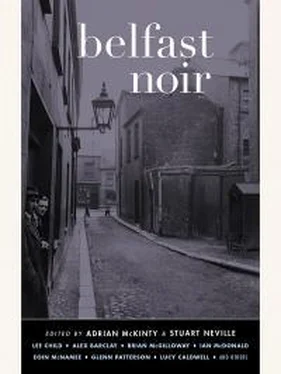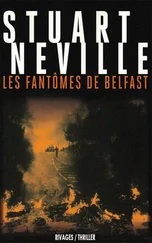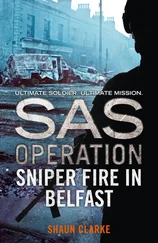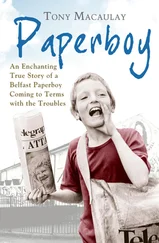I said, “Edmund Wall was born in this house.”
“Who?”
“Edmund Wall. The novelist. In America.”
“No one named Wall ever lived here.”
“His mother was a good friend of Mrs. McKenna. Right back at the beginning. She came to visit from America. She thought she had another month, but the baby came early.”
“When?”
“The 1960s.”
“In this house?”
“Upstairs in the bedroom. No time to get to the hospital.”
“A baby?”
“The future Edmund Wall.”
“I never heard about it. Mrs. McKenna has a sister. She never talks about it.”
Which felt like the runner getting checked back. I said, “You know Mrs. McKenna’s sister?”
“We have a wee chat from time to time. Sometimes I see her in the hairdressers.”
“It was fifty years ago. How’s her memory?”
“I should think a person would remember that kind of thing.”
Carter said, “Maybe it was hushed up. It’s possible Edmund’s mother wasn’t married.”
Mrs. Healy went pale. Impropriety. Scandal. In her house. Worse than cancer. “Why are you telling me this?”
I said, “The Edmund Wall Appreciation Society wants to buy your house.”
“Buy it?”
“For a museum. Well, like a living museum, really. Certainly people could visit, to see the birthplace, but we could keep his papers here too. It could be a research centre.”
“Do people do that?”
“Do what? Research?”
“No, visit houses where writers were born.”
“All the time. Lots of writers’ houses are museums. Or tourist attractions. We could make a very generous offer. Edmund Wall has many passionate supporters in America.”
“How generous?”
“Best plan would be to pick out where you’d like to live next, and we’ll make sure you can. Within reason, of course. Maybe a new house. They’re building them all over.” Then I shut up, and let temptation work its magic. Mrs. Healy went quiet. Then she started to look around her kitchen. Chipped cabinets, sagging hinges, damp air.
The kettle started to whistle.
She said, “I’ll have to talk to my husband.”
Which felt like the runner sliding into third ahead of the throw. Safe. Ninety feet away. Nothing guaranteed, but so far so good. In fact bloody good, as they say on those damp little islands. We were in high spirits on the way back in the Mercedes.
* * *
The problem was waiting for us in the Europa’s lobby. An Ulsterman, maybe fifty years old, in a cheap suit, with old nicks and scars on his hands and thickening around his eyes. A former field operative, no doubt, many years in the saddle, now moved to a desk because of his age. I was familiar with the type. It was like looking in a mirror.
He said, “Can I have a word?”
We went to the bar, which was dismal and empty ahead of the lunchtime rush. The guy introduced himself as a copper, from right there in Belfast, from a unit he didn’t specify, but which I guessed was Special Branch, which was the brass-knuckle wing of the old Royal Ulster Constabulary, now the Police Service of Northern Ireland. Like the FBI, with the gloves off. He said, “Would you mind telling me who you are and why you’re here?”
So Carter gave him the guff about Edmund Wall, and the appreciation society, and the birthplace, but what was good enough earlier in the morning didn’t sound so great in the cold light of midday. The guy checked things on his phone in real time as Carter talked, and then he said, “There are four things wrong with that story. There is no Edmund Wall, there is no appreciation society, the bank account you opened is at the branch nearest to Langley, which is CIA headquarters, and most of all, that house you’re talking about was once home to Gerald McCann, who was a notorious paramilitary in his day.”
Carter said nothing, and neither did I.
The guy continued, “Northern Ireland is part of the United Kingdom, you know. They won’t allow unannounced activities on their own turf. So again, would you mind telling me who you are and why you’re here?”
I said, “You interested in a deal?”
“What kind?”
“You want to buy a friend in a high place?”
“How high?”
“Very high.”
“Where?”
“Somewhere useful to your government.”
“Terms?”
“You let us get the job done first.”
“Who gets killed?”
“Nobody. The Healys get a new house. That’s all.”
“What do you get?”
“Paid. But your new friend in the very high place gets peace of mind. For which he’ll be suitably grateful, I’m sure.”
“Tell me more.”
“First I need to check you have your head on straight. This is not the kind of thing where you make a bunch of calls and get other people involved. This is the kind of thing where you let us do our work, and then when we’re gone, you announce your new relationship as a personal coup. Or not. Maybe you’ll want to keep the guy in your vest pocket.”
“How many laws are you going to break?”
“None at all. We’re going to buy a house. Happens every day.”
“Because there’s something in it, right? What did Gerald McCann leave behind?”
“You got to agree to what I said before. You got to at least nod your head. I have to be able to trust you.”
“Okay, I agree,” the guy said. “But I’m sticking with you all the way. We’re a threesome now. Until you’re done. Every minute. Until I wave you off at the airport.”
“No, come with us,” I said. “You can meet your new friend. At least shake hands with him. Then come back. Vest pocket or not, you’ll feel better that way.”
He fell for it, like I knew he would. I mean, why not? Security services love a personal coup. They love their vest pockets. They love to run people. They love to be the guy. He said, “Deal. So what’s the story?”
“Once upon a time there was a young officer in the US Army. A bit of a hothead, with certain sympathies. With a certain job, at a certain time. He sold some obsolete weapons.”
“To Gerald McCann?”
I nodded. “Who as far as we know never used them. Who we believe buried them under his living room floor. Meanwhile, our young officer grew up and got promoted and went into a whole different line of work. Now he wants the trail cleaned up.”
“You want to buy the house so you can dig up the floor?”
I nodded again. “Can’t break in and do it. Too noisy. The floors are concrete. We’re going to need jackhammers. Neighbours need to think we’re repairing the drains or something.”
“These weapons are still traceable?”
“Weapon, singular, to be honest with you. Which I’m prepared to be, in a spot like this. Still traceable, yes. And extremely embarrassing, if it comes to light.”
“Did Mrs. Healy believe you about Edmund Wall?”
“She believed us about the money. We’re from America.”
The guy from Special Branch said, “It takes a long time to buy a house.”
* * *
It took three weeks, with all kinds of lawyer stuff, and an inspection, which was a pantomime and a farce, because what did we care? But it would have looked suspicious if we had waived it. We were supposed to be diligent stewards of the appreciation society’s assets. So we commissioned it, and pretended to read it afterward. It was pretty bad, actually. For a spell I was worried the jackhammer would bring the whole place down.
We stayed in Belfast the whole three weeks. Normally we might have gone home and come back again, but not with the Special Branch copper on the scene, obviously. We had to watch him every minute. Which was easy enough, because he had to watch us every minute. We all spent three whole weeks gazing at each other, and reading crap about dry rot and rising damp. Whatever that was. It rained every day.
Читать дальше












